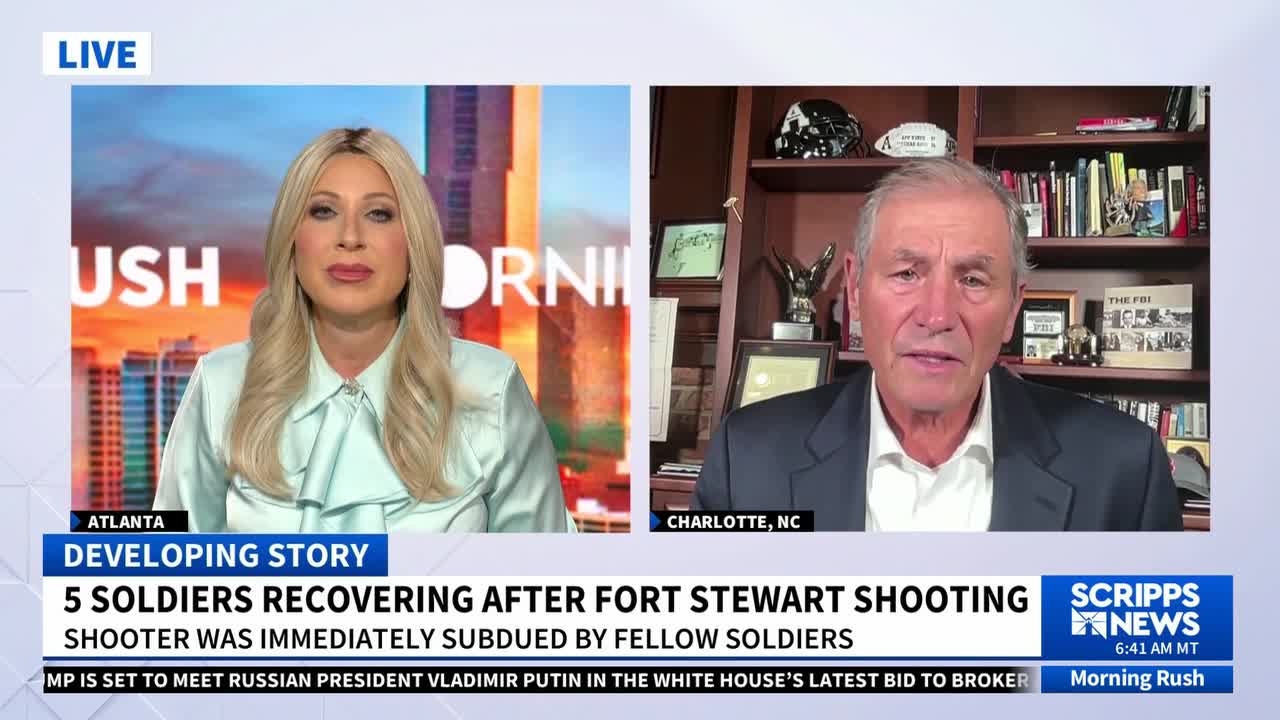An active duty Army sergeant shot five fellow soldiers with a personal handgun Wednesday morning at Fort Stewart, a U.S. Army base in southern Georgia, according to officials.
The suspect was identified as 28-year-old Sgt. Quornelius Radford, who worked as an automated logistics sergeant assigned to the 2nd Brigade Combat Team.
Scripps News spoke with Chris Swecker, a former FBI assistant director and a practicing attorney in North Carolina, about what will happen next in the case.
"Since he is in custody, he will have an initial appearance before a judge, a bond may or may not be set, unlikely. Now this is the military justice system, so he probably will not be released," Swecker said. "It's a totally different legal system than the civilian justice system. He'll be in pretrial detention or pre court martial detention. There's a preliminary hearing process in the military justice system that's a little different from the grand jury process in the civilian system where you actually have an adversarial hearing where the judge advocate represents both sides. So you'll have a JAG on one side and a JAG on the other side and they will make their arguments as to whether he should be brought up on formal charges."
"In the meanwhile, he has the same rights against self-incrimination and that sort of thing as a civilian would have. But in this case since it was all military, the perpetrator, military victims — that's probably going to stay within the Uniform Code of Military Justice system," Swecker said.
RELATED STORY | Officials: Army sergeant shot 5 soldiers at Georgia base with personal handgun
Radford was "immediately" subdued by other soldiers and apprehended, officials said Wednesday.
"Fortunately, no one was killed," Swecker said. "And that's probably through the heroic actions of those other soldiers. It'll be interesting to see who the intended victim was and how long this was in the works. Were there red flags? Was there a long trajectory of premeditation here? Who did he buy the gun from? Was he articulating his resentments and his feelings to the non-commissioned officers that are the first line of supervisor for these soldiers? The military should have a sort of early warning system, if you will, to detect when soldier is troubled, if you will, and maybe displaying some sort of rage or mental illness or that sort of thing and articulating the same so they can intervene and send him to get some counseling or intervention of some kind."
Watch the full interview in the video above.




